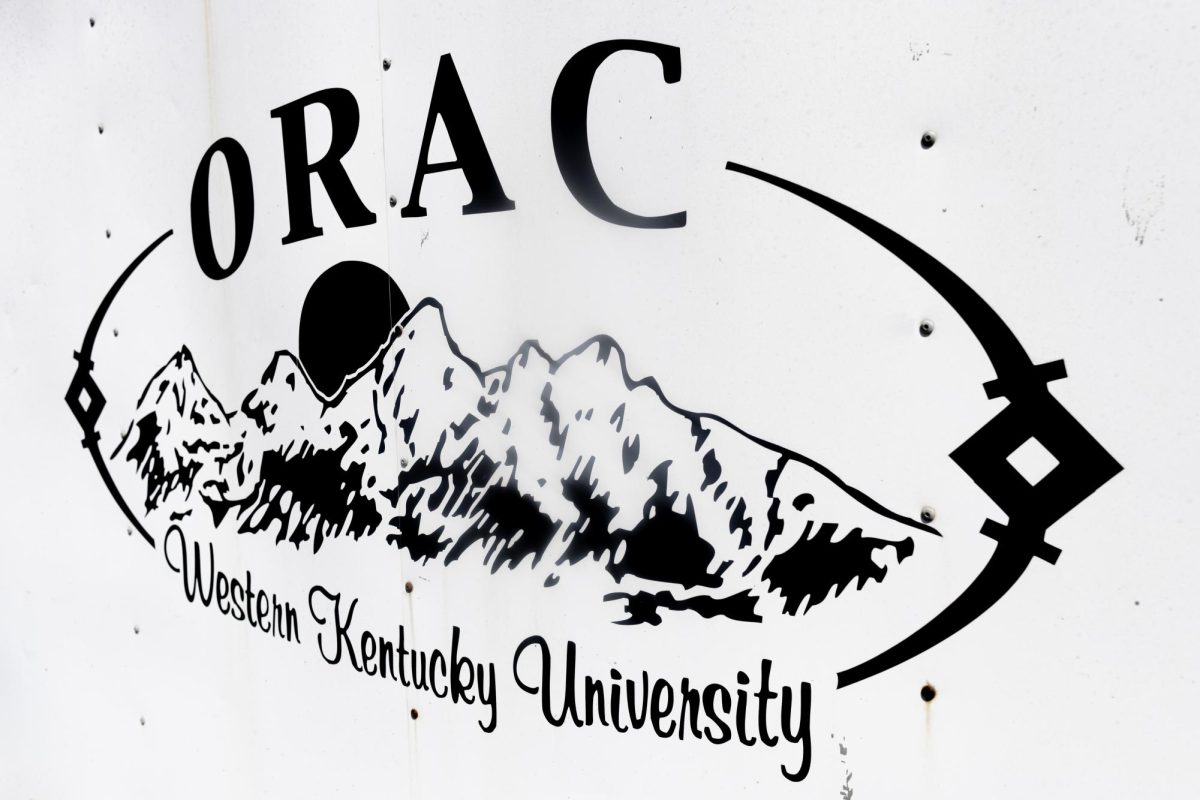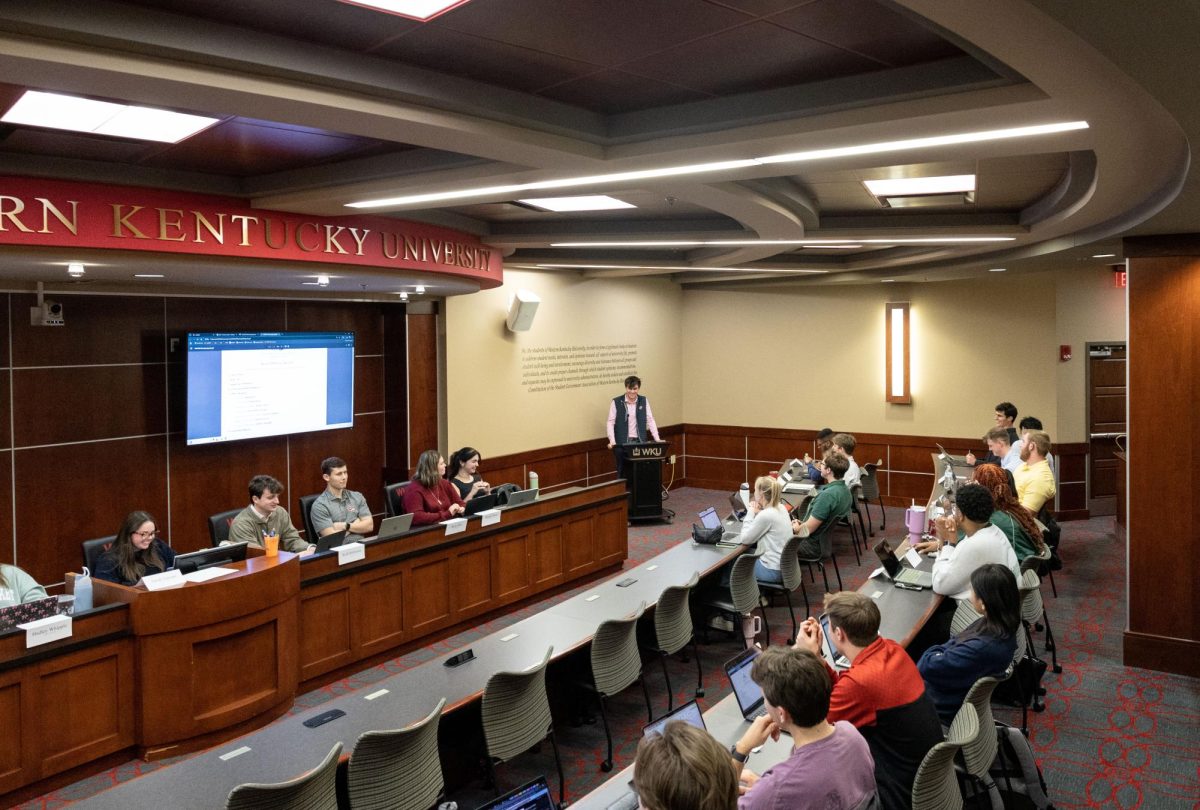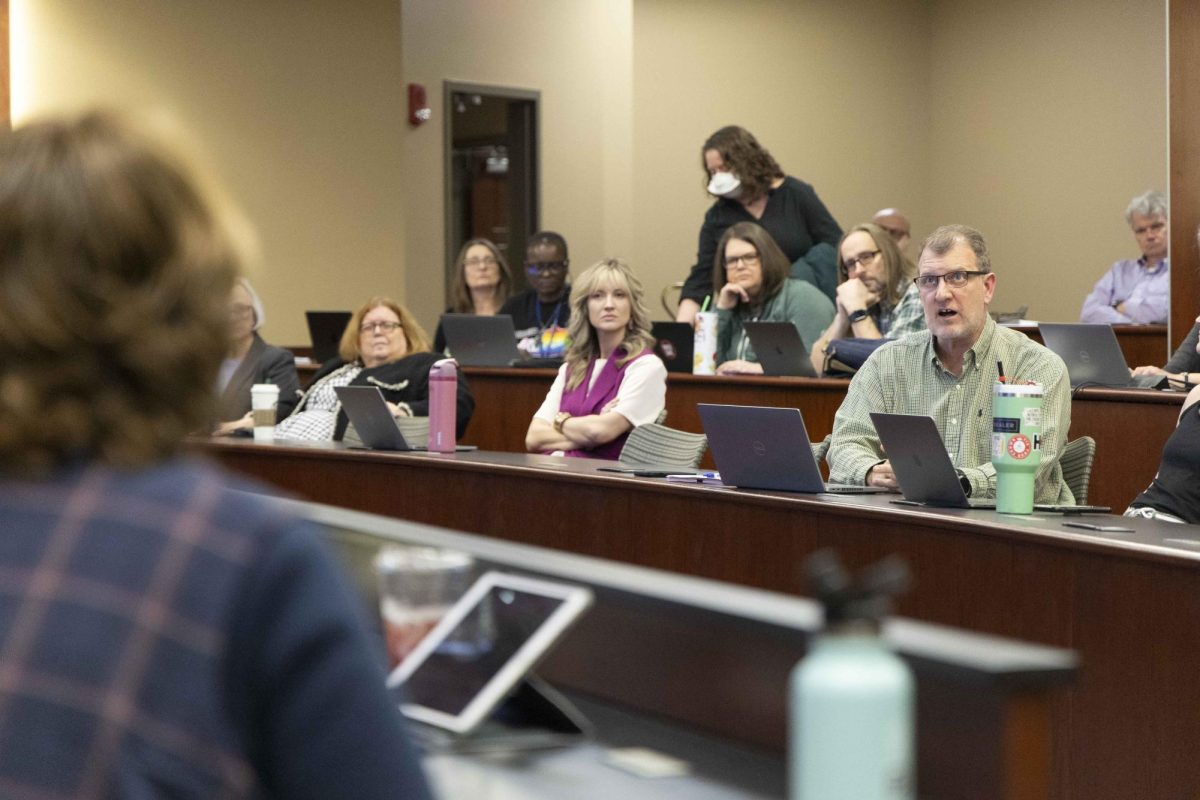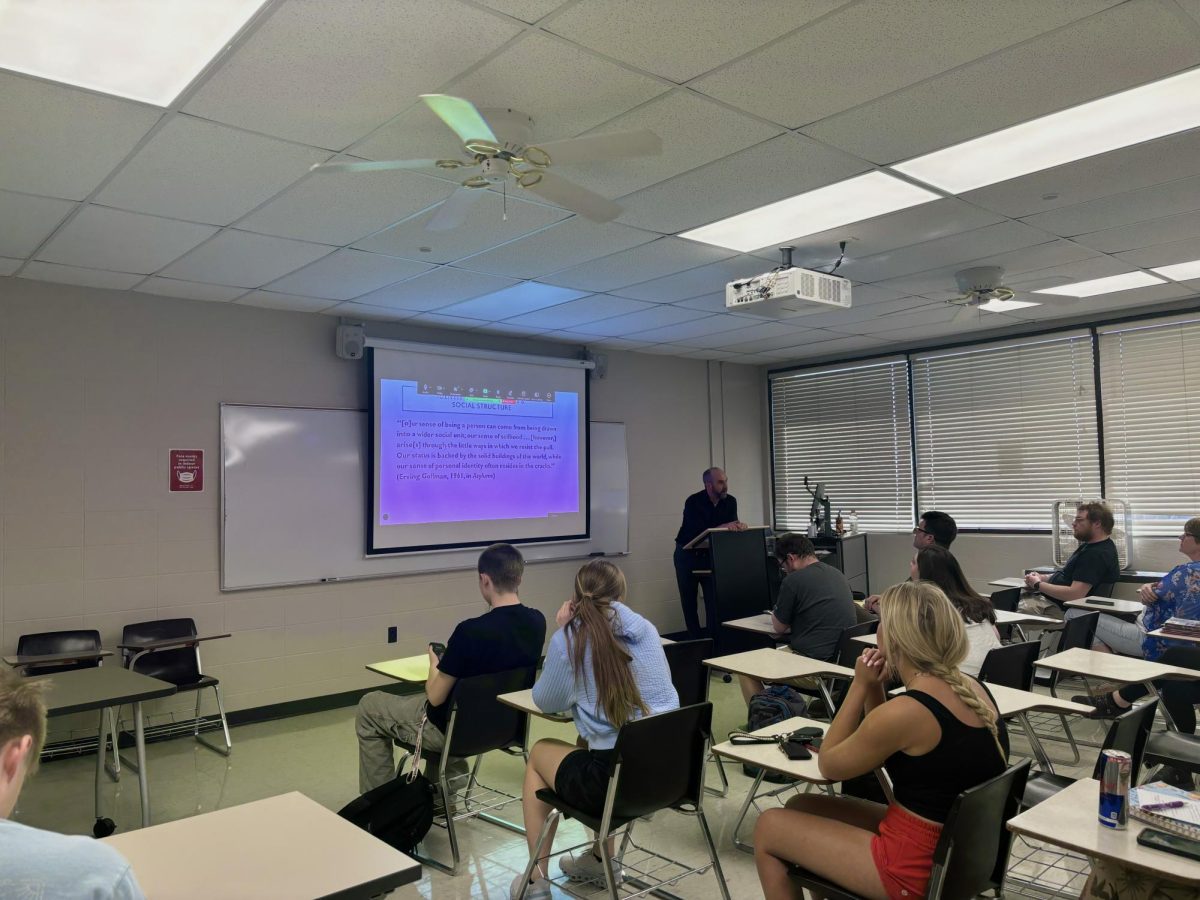Bowling Green, home of Western Kentucky University, is situated among natural areas rich with opportunities for outdoor recreation and is only a 40-minute drive to Mammoth Cave National Park.
Coming to WKU, some students seek the chance to explore these recreational opportunities, even if they don’t have any experience. Many found this chance through the WKU Outdoor Recreation and Adventure Center.
ORAC provided an outlet into the outdoors for students, hosting group recreation trips like camping and canoeing throughout the semester and working a gear shop, where items like kayaks and climbing tools could be rented.
This September, ORAC was closed indefinitely due to the effects of COVID-19, lack of student engagement and budget cuts.
Ashton Hoelscher, a senior recreation administration and environmental sustainability major, worked at ORAC since his freshman year. He expressed his disappointment with ORAC’s closure, sharing that the group trips gave a level of comfortability to those who had never done activities like rock climbing or kayaking before.
“When you go with other students that are like you, it can be really exciting,” Hoelscher said. “We get to meet new people, and you’re slowly learning and getting more comfortable outdoors or doing things that you could [learn to] do by yourself.”
Hoelscher explained that without ORAC, something he would have missed out on is seeing all the outdoor recreation opportunities that the Bowling Green area offers – with many of his current favorite spots being ones he discovered through ORAC.
“As someone that’s not from here, when I first moved here, I didn’t know, like, where’s the best place to hike, or where could I possibly even go kayaking,” Hoelscher said. “It’s really unfortunate that we have Mammoth Cave National Park within 30 minutes of us, but people may not know that without ORAC or may not feel comfortable enough to go on their own.”
Justin Cato, director of campus recreation and wellness, stated in the Herald article about ORAC’s closure that it was due to effects of COVID-19, low student engagement and budget cuts. While Hoelscher agreed with these reasons, he said a large part was also a general “lack of support overall” from the university.
“When it came to tabling events or Discover Fest or things like that, ORAC wasn’t a featured thing,” Hoelscher said. “We did our best to promote ourselves on Instagram or social media as much as we could, but there’s no added help, so then people didn’t know about us unless they already kind of did.”
Hoelscher also suggested a cause of low student engagement was scheduling issues with ORAC trips, for example, scheduling a trip on a holiday weekend or at the time of a WKU athletics game.
“It was also hard just to get people, student staff, to lead those trips, because they have other commitments […],” Hoelscher said. “That’s something that I think, since our calendar didn’t align to fill in the gaps of where there may not be events going on, it was like a battle we already lost.”
Since its start, ORAC was primarily managed by a program director. In Fall 2020, a graduate assistant position in ORAC was created, with Jacob Rex serving as the first, and only, graduate assistant (GA) there for two years. 10 days after Rex began as the GA, the ORAC program director at the time left.
This change left Rex, who was getting a WKU graduate degree in organizational leadership, to act as the interim ORAC coordinator. Rex explained, with no fault to the previous coordinator, “ORAC was suffering pretty terribly when I got there.”
“Programs were not running or filling,” Rex said. “Rentals weren’t happening. There was no formal training for students. The development opportunities were limited. They [student staff] didn’t even really have their own space to be in, like a physical space.”
From the Appalachian Area in Tennessee, Rex went to Middle Tennessee State University, where the outdoor program there “changed his life.” He has seen outdoor programs change others’ lives and believes having ORAC did that at WKU.
“My goal at ORAC was to bring that opportunity to Hilltoppers and Bowling Green, to give them technical skills and to bring students challenges in a way that they may not be challenged otherwise, in a way that supports them, gives them validation but also teaches them new skills,” Rex said. “My goal with ORAC, even though it was very small, was to provide unique social experiences for students in highlighting outdoor areas near and in Kentucky in general, to highlight those areas and to give students a place for genuine professional developments where they won’t get other places on campus.”
Similar to Hoelscher, Rex thought more could have been done by WKU to help with preserving ORAC and what it brought to students.
“I felt that the effort that I put into that program was not validated,” Rex said. “I felt like I was plugging up holes in a sinking ship that the university was pouring a fire hydrant into on purpose.”
Without ORAC, Rex explained students will not only miss out on what he considers the best hiking, backpacking and kayaking in the region, but will really miss out on pivotal moments that could change the direction of their life.
“You [may] see how important maybe the outdoors are to you, but more as a leader, seeing what your role as a leader is, and seeing what it is you’re really made of,” Rex said. “I think outdoor activities are really characteristic, that it is a mirror to people, to who you are and who you could be.”
ORAC was part of Campus Recreation and Wellness, which includes other programs like WellU, Hilltopper Nutrition and the Health and Fitness Lab. Rex explained that he doesn’t blame the professional staff there for ORAC’s closure, and said they “did their best to shield us [GAs].”
“I think it went out with a whimper, which I think was hard for me to swallow,” Rex said. “A program that I think touched a lot of students’ lives. A lot of the students that were on our program still, I still keep in contact with and a lot of our student staff, and the impact I saw that it had on the Hilltoppers’ culture in general. Just going out with so little care from the administration, I think, was kind of a gut punch.”
Rex graduated in 2022 and currently works at another university with a similar outdoor recreation program, what he described as one of the most successful in the nation. After he left, Sam Talbert was hired as the program coordinator, but left the position at the start of the Spring 2024 semester.
“Once I left, I knew it was a ticking time bomb for them to eventually shut it down,” Rex said.
Will Hemenover, a 2024 WKU graduate in biology and environmental science, worked at ORAC for a year and a half, and values his experience there, as he is now using some of the skills he learned at his job with the National Park Service.
During his last semester with ORAC in Spring 2024, Hemenover experienced the difficulties the center faced – which included the cancellation of all trips and the gear shop not opening until mid-March. While this was hurtful because ORAC was something he enjoyed, it was also difficult financially.
“It was heartbreaking to hear that once he [Talbert] left, the money was not really there, at least at the moment, to replace that supervisor role,” Hemenover said. “[…] that was just difficult, because that was an outlet that I enjoyed, but also that was a source of income for me as well. Just being a student, that was a little bit difficult, and being a person who’s graduating at that point, nowhere on campus is really looking to hire someone that’s on their way out.”
Without a program coordinator last semester, among other previous struggles, Hemenover said it was hard on the student staff to organize all events, and that many didn’t have the necessary training to hold events or recreational clinics. He also shared that more usage and collaboration with the WKU Challenge Course, a recreational area with ziplining, a rock wall and a ropes course that shut down in 2022, could have benefited ORAC.
“I always just thought that [the challenge course] was a missed opportunity, because there was a lot of opportunity for them, student workers, to get more hours to do that sort of thing,” Hemenover said. “Also, WKU organizations all the time would come out there and do that for group bonding or just an activity in the year.”
He agreed that low student participation played a part in ORAC’s closure, but that it was interconnected with the issues of budget and COVID-19. However, he said student involvement was still high with fall and spring break trips and the well-known “full moon float” canoeing trip at Shanty Hollow.
“I know that since COVID, having to shut those trips down was a big hit [to ORAC], because what I’ve heard from my other alumni, or have read before, is that a lot of trips were never left empty, or all spots were filled. I definitely think that was a factor in that case,” Hemenover said.
Like Hoelscher and Rex, Hemenover believes that ORAC offered the opportunity for students to get outside and learn about recreation to those who may never have that opportunity again.
“I think that overall, whether trips had high participation or not, getting to lead trips and where sometimes I had friends in the trip or where it’s just students that I didn’t know, it was a great way to meet people, and I know that it was for the trip participants as well,” Hemenover said. “The joy that people had going outdoors and getting to do this when maybe they had never even been on a kayak before […] not everyone has had that opportunity. And I think everyone deserves to have that opportunity, if they would like.”
It is the use of this opportunity that led students like Hemenover to further develop skills from ORAC, whether in their professional or personal life. Rex believes building this pathway may have been one of ORAC’s most important roles in the WKU community.
“WKU wants to focus on putting exceptional leaders into the world and exceptional alumni that change Appalachia and change Kentucky,” Rex said. “I think they just shot themselves in the foot by taking away one of the best pipelines to that kind of future.”
News Reporter Alexandria Anderson can be reached at alexandria.anderson337@topper.wku.edu.








